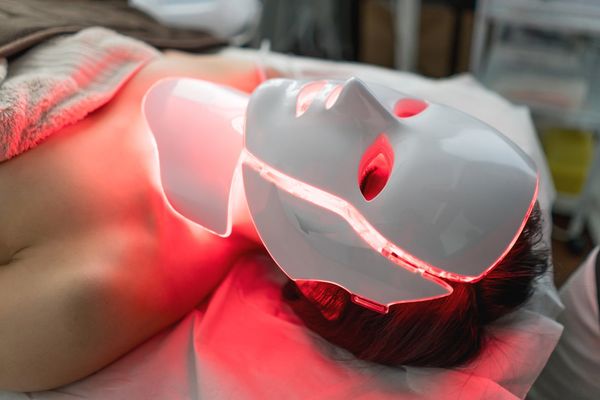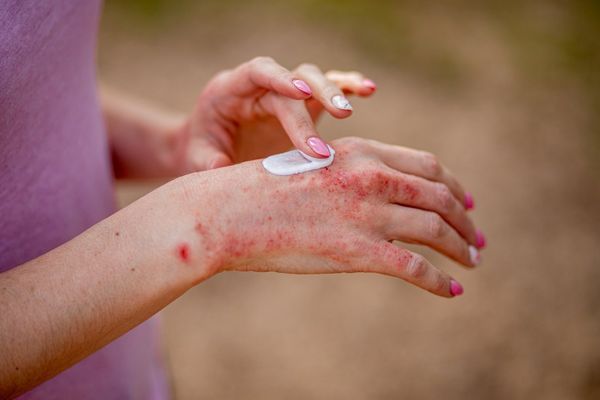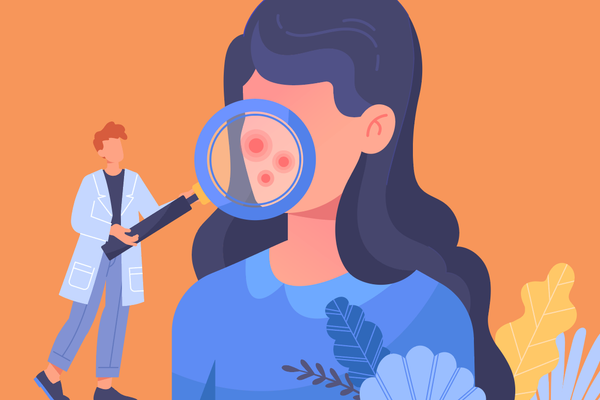It frightens me to think of all the risky things I, and many others, did in childhood. No, I'm not talking risky as in sex, drugs and rock 'n' roll (let's keep those details between us), but risky health-related behaviors that were once considered harmless (or barely considered at all).
Driving in a car without a seatbelt, riding a bicycle without a helmet, running through clouds of DDT, being exposed to second-hand smoke (or worse, first-hand) and baking in the sun.
These things were not really our fault. We simply didn't know better back then — and few people did.
Seatbelts are now mandatory, bike helmets plentiful. DDT is a banned pesticide and smoking a known carcinogen.
And the sun? Although we know it's the leading cause of melanoma, the deadliest form of skin cancer, and premature aging of the skin, we still worship it. And although UV exposure is the most preventable risk factor for all skin cancers, not enough people take the sun's risks seriously.
That's not to say you need to shun the sun entirely, although there are some who should. What it means is that you need to practice your sun worship safely.
- Use sunscreen during everyday activities — not just at the beach or pool. That means when you're doing things like walking the dog, driving a car, sitting outside or mowing the lawn. Simply being outside without skin protection increases your risk of developing skin cancer.
- Apply sunscreen even if you don't think you need it. It doesn't have to be a sunny day or a summer day. About 80% of UV rays can penetrate the clouds, and the snow, sand and water can reflect the sun's rays. Not enough people are aware of this. The American Academy of Dermatologists found that just 1 in 5 Americans always or almost always use sun protection when they're outside on cloudy days.
- Use the right type of sunscreen. Everyone should use a broad-spectrum, water-resistant sunscreen with a minimum SPF of 30. Broad-spectrum is protective against both UVA and UVB rays, which can both cause skin cancer.
- Don't wait until you get to the beach or outdoors to apply your sunscreen. Instead, apply it 20 to 30 minutes before going outside. That's because it takes about 15 minutes for the sunscreen to be absorbed by your skin. And remember, trees, canopies or umbrellas do not offer full sun protection.
- Are you using enough? Lots of people underestimate how much they need. The rule of thumb for most adults is to use about a shot-glass full, which is equal to about 1 ounce, to cover their body, and a nickel-sized amount (or more) for the face, neck and ears. Learn more about How to Use Sunscreen the Right Way.
- Are you applying your sunscreen often enough? Even though sunscreens are labeled "waterproof" or "sweat-proof" or "all-day protection," you still need to reapply them every two hours (or immediately after you swim or sweat).
- Easy-to-miss areas include your neck, ears and the tops of your feet and legs. If your hair is thinning, make sure to cover your scalp with sunscreen as well. Better yet, apply sunscreen and wear a hat. For your lips, use a lip balm with an SPF of 15 or more.
- Check the expiration date. The shelf-life of sunscreen is about three years, as regulated by the Food and Drug Administration (FDA). Some will be marked with an expiration date (if yours isn't, write the date you purchased it on the container). Throw it away if it's past the expiration date or you bought it more than three years ago, because it will have lost effectiveness.
- Although the news has recently mentioned that sunscreen ingredients can potentially be absorbed by the skin and enter your bloodstream and thus may be unsafe, experts are not saying to ditch your sunscreen. They also state that an ingredient is not necessarily unsafe just because it's absorbed. The FDA is asking for more safety data. (If you're concerned, you can use sunscreens that contain active mineral ingredients like zinc oxide and titanium dioxide. These ingredients are not absorbed by the skin; instead, they work by sitting on top of the skin and deflecting and scattering UVA and UVB rays away from the skin and are known as "physical sunscreens.")
- While clothing can offer a good barrier against the sun, you can still get burned through it. Less sun will penetrate through fabrics that are knitted or tightly woven, and darker colors usually block more UV radiation than lighter ones. If you have a garment with UV protection built in, remember that this protection wears off if it is over-stretched, wet or worn. (There are special additives you can use during the laundry process that can put the SPF protection back in.)







